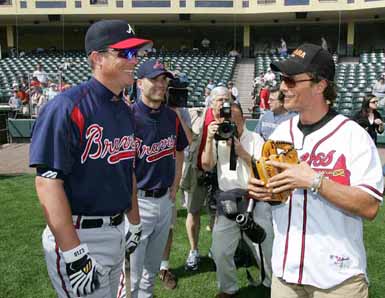The LifeVesting Cycle
Stage 1: Allocate your resources.
Stage 2: Explore the possibilities
Stage 3: Follow your passion
Stage 4: Execute your plan
Stage 5: Protect Your Investment
 Years ago, a Detroit homeowner went to check on his five-bedroom house.
Years ago, a Detroit homeowner went to check on his five-bedroom house.
It was gone.
As in, completely removed down to a vacant lot, gone.
Completely baffled, he asked the Detroit Free Press to help him find out what was going on. A reporter learned that not only was the house gone, but the deed to the empty lot was in someone else’s name. What had happened?
For starters, several years had passed since the homeowner had left the city without providing a forwarding address. Moreover, he had failed to make arrangements for someone to keep the property in repair. So the house was torn down because a city ordinance called for the removal of neighborhood eyesores.
Gives a whole new meaning to “Snooze, you lose,” doesn’t it?
Want to see a farmer laugh? Tell him you’re going to plant corn or tomatoes or something, take a three-month vacation, and come back to pick your harvest. Sorry, Mr. Douglas. It doesn’t work that way, in Hooterville or anywhere else. Investments of any type require care and cultivation. Jesus’ story of the sower and the four types of ground show just how rare a harvest really is. The seed that fell on the hard path became birdseed. The seed that fell on stony ground sprang up rootless. And the seed that fell among the thorns choked.
Investments – seeds of all types and the environment they’re planted in – require nourishing. That means breaking up the hard, resistant places, deepening the shallow places, and pulling the weeds. Did I mention that this was work? Where every day hurls new surprises and challenges? But if the harvest is worth it (and you will wonder at times), then the cultivating is worthwhile.
In order to experience the return you want, your investments require your attention, diligence, and adjustments. Mind if I switch metaphors? Hebrews 12 talks about the same idea, only it uses the imagery of a marathon race, and you’re the runner. Based on the imagery in this chapter, here are four ways to protect your investment: [click to continue…]
 You probably never knew Lillian Hearst. But she sent you a gift, and I wanted to share it with you. It won’t be necessary to send a thank-you note – just pay it forward by sharing her gift with someone else. Oh, and of course, use the gift yourself.
You probably never knew Lillian Hearst. But she sent you a gift, and I wanted to share it with you. It won’t be necessary to send a thank-you note – just pay it forward by sharing her gift with someone else. Oh, and of course, use the gift yourself.

 This is what government does.
This is what government does. You up for a little side trip? This one rolls down Memory Lane in a church bus with papered-up windows, wide-eyed teenagers, and me in handcuffs in the back of a police car. This is the (true) story of what happens when non-planning randomizers like me actually take the time to plan something. This is the story of The Underground Project.
You up for a little side trip? This one rolls down Memory Lane in a church bus with papered-up windows, wide-eyed teenagers, and me in handcuffs in the back of a police car. This is the (true) story of what happens when non-planning randomizers like me actually take the time to plan something. This is the story of The Underground Project. “I’ve become just about every sort of servant there is in my attempts to lead those I meet into a God-saved life. I did all this because of the Message. I didn’t just want to talk about it; I wanted to be in on it!” -1 Corinthians 9:22-23, The Message
“I’ve become just about every sort of servant there is in my attempts to lead those I meet into a God-saved life. I did all this because of the Message. I didn’t just want to talk about it; I wanted to be in on it!” -1 Corinthians 9:22-23, The Message This week a friend sent me a poignant and compelling image that describes what it’s like to live in a climate or with a spirit of fear. But the image is so strong, I think it describes anybody who feels as though they are in a no-win situation.
This week a friend sent me a poignant and compelling image that describes what it’s like to live in a climate or with a spirit of fear. But the image is so strong, I think it describes anybody who feels as though they are in a no-win situation.

